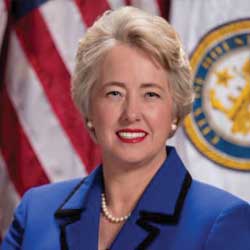Annise Parker

Annise Parker
Former Mayor of Houston, Texas, USA
Now, as a part of NDI’s Women Mayors’ Network (WoMN), I am able to tap into the reservoir of talent and ability that current and former mayors provide each other. My recent work on relief efforts following hurricane Harvey proved a timely reminder of this fact.
The Honorable Annise Parker spent many years in service to the people of Houston, America's 4th largest city. She served six years as a City Council Member, six years as City Controller, and six years as Mayor. She is one of only two women to be elected Mayor, and is the only person in Houston history to hold the offices of Council Member, Controller and Mayor. She was the first openly LGBT Mayor of a major American city and only the 10th woman.
As the City's Chief Executive Officer, she was responsible for all aspects of the general management of the City and for enforcement of all laws and ordinances. The Mayor’s tenure included passage and implementation of Rebuild Houston, a pay-as-you-go comprehensive street and drainage improvement program; voter approval of a $410 million public improvement bond program that included a $100 million private match to expand hike and bike trails throughout the city; creation of an independent organization to oversee the City’s crime lab operations; a unique sobering center for public intoxication cases; adoption of a long-term financial plan that ensures the stability of the City’s water department and reorganization of City departments to achieve cost savings and more efficient operations. She created a new City department focused on the needs of neighborhoods and the Office of Business Opportunity to help minority and women-owned small business enterprises compete for city contracts. Her commitment to reducing homelessness resulted in Houston becoming the largest city to effectively end veteran homelessness and a 60% decline in overall homelessness.
By #LeadingDifferently, members of the WoMN have the opportunity to practice inclusive governance and strengthen democratic resilience at the urban level. If we do, the WoMN will be a force that makes our cities better places to live and work for everyone.